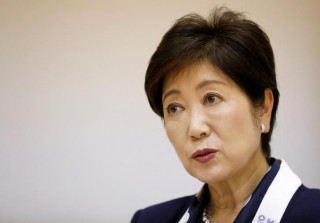Loading
Search
▼ Koike says Tsukiji fish market will not be relocated for at least 1 year
- Category:Other
TOKYO — The controversial relocation of Tokyo’s Tsukiji fish market will not take place for at least one year due to pending safety checks at the replacement site, even if the metropolitan government decides to go ahead with the move, Tokyo Gov Yuriko Koike said Friday.
The relocation of the wholesale market, which also deals in fruit and vegetables, to the nearby Toyosu area was postponed after new Koike decided in August to delay the Toyosu market’s planned November opening amid concerns about soil and air pollution.
It was subsequently revealed that the new facility, which sits on land previously used for a gas production plant, has been built on empty concrete chambers instead of a thick layer of clean soil, which experts had recommended to protect against possible polluting residues.
The metropolitan government has compiled a schedule showing that an expert panel and a relocation project team will check the safety of the new site after the results of a ninth round of groundwater tests are released in January.
If the metropolitan government decides then that it only needs to modify its environment impact assessment report, the market could be relocated sometime in winter next year or the spring of 2018 at the earliest, Koike said in a press conference.
But if it sees the need to redo the assessment, the relocation will be further postponed by another year, the governor added.
“We have to make a decision without prejudgment” following the scientific conclusion of the expert panel, she said.
In December 2001, the Tokyo government decided to move the Tsukiji market, known for its daily fish auctions, from the current location near Tokyo’s Ginza shopping district because the facility had become obsolete and cramped.
But toxic substances including benzene were found in the soil at the Toyosu site where decontamination work had been conducted since 2011. The initial plan to build the Toyosu market’s main buildings on clean soil was part of pollution countermeasures.
The latest schedule compiled by the metropolitan government also shows that construction of a tunnel running beneath the Tsukiji site would not be completed in time for the 2020 Tokyo Olympics, as planned.
The metropolitan government instead plans to build a road above ground or use existing roads, according to Koike.
© KYODO
The relocation of the wholesale market, which also deals in fruit and vegetables, to the nearby Toyosu area was postponed after new Koike decided in August to delay the Toyosu market’s planned November opening amid concerns about soil and air pollution.
It was subsequently revealed that the new facility, which sits on land previously used for a gas production plant, has been built on empty concrete chambers instead of a thick layer of clean soil, which experts had recommended to protect against possible polluting residues.
The metropolitan government has compiled a schedule showing that an expert panel and a relocation project team will check the safety of the new site after the results of a ninth round of groundwater tests are released in January.
If the metropolitan government decides then that it only needs to modify its environment impact assessment report, the market could be relocated sometime in winter next year or the spring of 2018 at the earliest, Koike said in a press conference.
But if it sees the need to redo the assessment, the relocation will be further postponed by another year, the governor added.
“We have to make a decision without prejudgment” following the scientific conclusion of the expert panel, she said.
In December 2001, the Tokyo government decided to move the Tsukiji market, known for its daily fish auctions, from the current location near Tokyo’s Ginza shopping district because the facility had become obsolete and cramped.
But toxic substances including benzene were found in the soil at the Toyosu site where decontamination work had been conducted since 2011. The initial plan to build the Toyosu market’s main buildings on clean soil was part of pollution countermeasures.
The latest schedule compiled by the metropolitan government also shows that construction of a tunnel running beneath the Tsukiji site would not be completed in time for the 2020 Tokyo Olympics, as planned.
The metropolitan government instead plans to build a road above ground or use existing roads, according to Koike.
© KYODO
- November 19, 2016
- Comment (0)
- Trackback(0)


